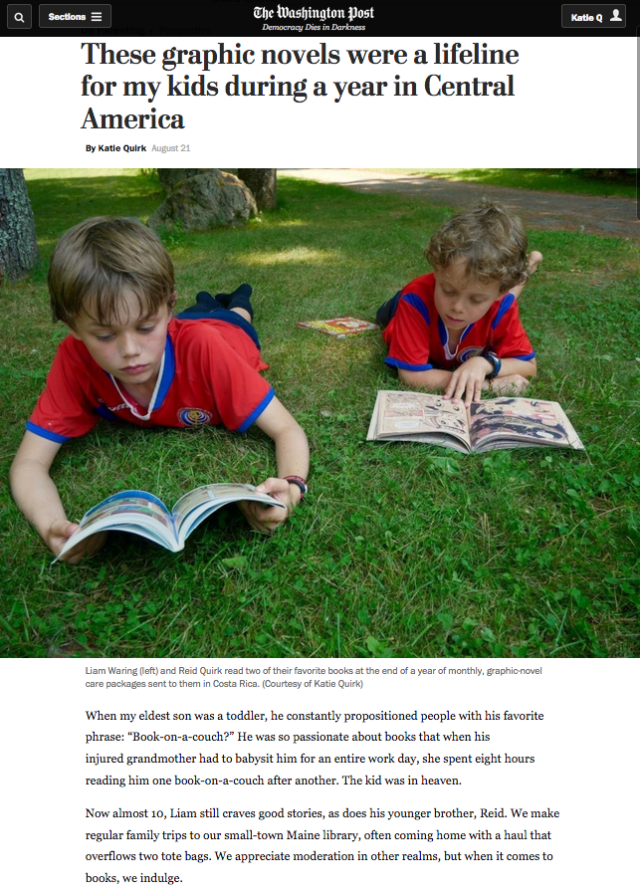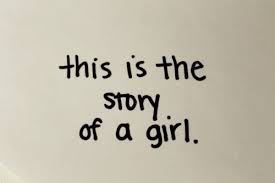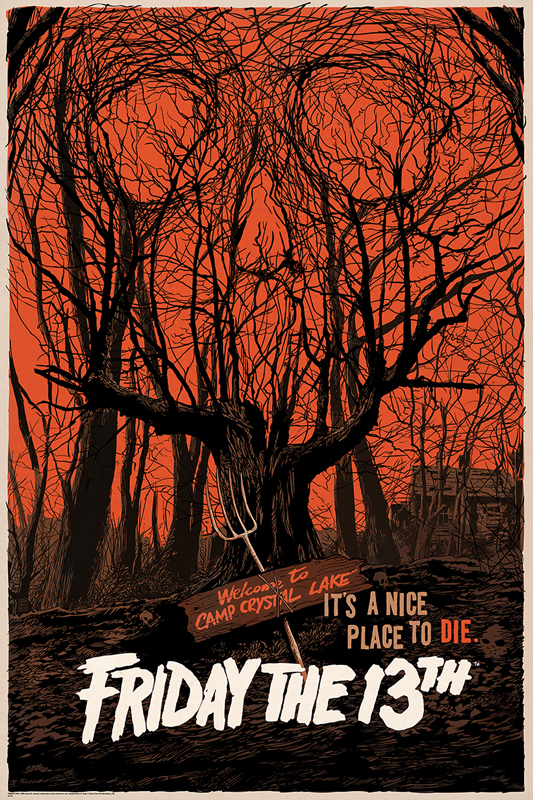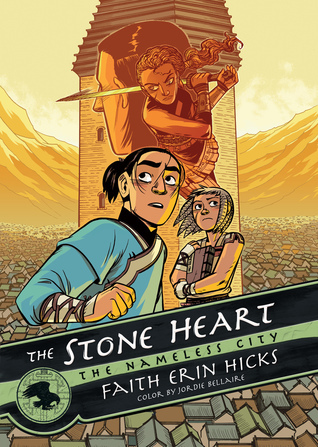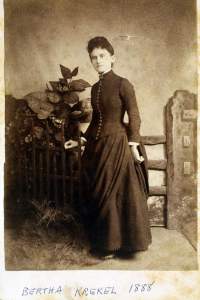Welcome to DoWntime’s not-too-regular column, Assessing Stress. That’s where we assess … stress. Or more accurately, talk and debate about the newest episodes to hit the television screen, the new releases from Big Finish, and all these good things. Spoilers after the “read more” tag!
And today, Tibère and Scribbles tackle the long-awaited Torchwood sequel, “Aliens Among Us”. Cardiff says no to hate, but we say yes to that boxset. Spoilers after the read more tag. CWs: discussion of sexual harassment,
Spoiler-free thoughts
“Torchwood and politics never mix.”
“Maybe they should.”
TIBERE: Well, that was rather amazing. It’s a little bit hard to put all the puzzle pieces together and to deliver a final verdict on “Aliens Among Us”, because we’re dealing with a heavily serialized twelve episodes arc we have only seen a third of; but, just from the first four stories, I think it’s safe to say it’s shaping up to be something truly, truly special, and maybe one of Big Finish’ greatest storytelling successes. Of course, it’s an occasionally frustrating – infuriating, even, experience, that loves to tease and build-up and leaving you unsatisfied. But at any rate – even if they end up screwing up massively (which doesn’t seem likely considering the level of talent involved), the ideas, the concepts and the themes on display here more than justify the existence of this range. Maybe we can’t yet say how good it is at storytelling, but there’s no way to attack its ambition. This feels like Torchwood, and Big Finish, at their most creative, courageous and cutting-edge. I’m all for it, and I’d probably say that if you have to buy a single boxset this year, that one is probably the one to go for.
SCRIBBLES: It almost feels too soon to call, doesn’t it? There’s so much up in the air at this point. I feel like the closest point of comparison is Miracle Day, another serialized story across a bunch of episodes with occasional episodic concerns, which didn’t really make a big statement about what it was going to be until the halfway mark with “The Categories of Life.” All we can judge right now is the setup and character work, and that certainly is promising. While not as high concept as “Children of Earth” or “Miracle Day,” at least not yet, “Aliens Among Us” has set up fascinating and tremendously relevant political storytelling that looks to place characters new and old in remarkably interesting places, while not entirely losing the delightful identity of individual episodes along the way building to that. It feels raw, and, yeah, rather incomplete at this point, but it’s really already set to be an absolutely essential piece of Torchwood and the Doctor Who universe at large.
“You spend your time on aliens and secret bases, but not this. You did nothing to prevent this. Crawl out from under your rock, THIS is the world that needs saving! Forget the aliens, this – THIS is the real world!”
TIBERE: And here we start. By going back, really, to the very first episode of Torchwood, except times have changed and all the building blocks of the Torchwood storytelling have been turned on their heads. It’s not just a metatextual game – to position Tyler in the Gwen role, and have Gwen in the role Jack once held. It’s a reaction to the epoch, I feel, in a way that feels pointed and political – because, really, all of the set is. But really, Torchwood was created in a time still impacted by the Iraq War (as shown, explicitly in “To the Last Man”, which also happens to be James Goss’ first direct contribution to Torchwood) – a time where normal people were whisked away by a shadowy governmental organization to fight a mysterious “other”, an invader, a foreign invader. In 2017, though, it’s all just … Well, a gigantic mess where the classic form of morality don’t seem to mean much, where Buzzfeed journalism meets blind hate crimes and complex establishment plots, where bombs go off all the time and where no one is who they say they are.
SCRIBBLES: Furthermore, in paralleling Tyler to the Gwen role, Gwen herself gets a bit complicated here. A lot of people have responded to this episode by being very thrown by Gwen’s voice work. I certainly was. I kept expecting this tough welsh woman to be revealed as one of the new members, mainly the heavily promoted but apparently absent Ng, which, I guess, she kind of is, as apparently Alexandria Riley voices “Gwen” most of the time here, and that’s the core tension the episode engages with. In a way, Ng’s name even suggests that. Pronounced “Eng,” and featuring the first and last letters of Gwen backwards, it feels like an inverted version of her name and identity. And none of this is said. The range has it on trust that the listener will really engage with the material and puzzle out the enigma of Gwen’s odd performance, and it’s really fascinating to see Big Finish audios be so demanding and complicated, to greater overall meaning. So not just Tyler but also Gwen, or rather Ng, fail at being Gwen. Tyler makes an impulsive choice that could be genre savvy in other situations and gets people killed, and Gwen isn’t who she claims to be, even with introducing herself as Gwen as the final beat, the stinger to cut to the title music. That suggests the importance of identity to this series, and it is shaping up to be quite a prominent theme. There’s the question of whether aliens that look like humans are humans, discussions of sexuality and race and gender, and, of course, the utter category-defying wonder that is Orr. It’s digging into diversity and tensions of xenophobia from a very personal perspective. And at center of that are Gwen and Tyler, both trying and failing to be the heart of the show.
TIBERE: Really, the central problem of Aliens Among Us is what “makes” an alien, and what “makes” a human. There’s this classic conceit in science-fiction, to “other” an existing human population by making it alien; that was then countered by having alien civilizations standing on their own two feet and being completely different from us, generally preaching a message of cooperation and tolerance (I’m thinking Star Trek and Mass Effect, among many, many others). But here, we’re sort of going the extra step – it’s not just one or the other, “alien” is just an extremely complicated term that encompasses many shades of behaviour, politics and identity.
SCRIBBLES: I feel like the most telling paradoxical complication comes from Mr. Colchester, who has a deep, conservative distrust by aliens, but also the rejection of the expectations that would come from that conservative stance by also having a Muslim husband and being pretty inclusive on the whole.
TIBERE: That scene with him and Tyler is really something special, isn’t it? The little smart-ass gay kid being all confused by Colchester. And yet, he still speaks about “liars and feminists” and rants about killing aliens being a potential necessity, in the end.
SCRIBBLES: There’s a really fascinating paradox of microaggressions with Colchester, isn’t there? I feel like his character is set for one of the most interesting and emotional arcs, because it feels inevitable at this point that his husband, Colin, will have to confront him and talk this out. And that could go so many ways, we still haven’t even met Colin! But there’s this inevitable dramatic reckoning hanging over Mr. Colchester as a result of his turbulent and complicated views, and I am absolutely invested in hearing where it goes. Because, of course, you can’t miss the race and aliens metaphors. I mean, the whole plot of this opener is about blowing up refugee shelters, juxtaposed with extraterrestrial refugees moving into our world and even being the source of these horrors. It’s really complicating the general metaphor of aliens as a racial other while still engaging with the loaded political implications, to some as yet unknown but likely fascinating end.
TIBERE: That whole alien metaphor is just fantastic. Because the story is careful with it, and does put a lot of effort in portraying human migrants and refugees as completely innocent – there is this absolutely amazing little bit in that episode where a news anchor interviews a refugee leader and repeatedly asks him to condemn the bombings, despite the person insisting that it’s obvious that he does, and that his daughter has even lost a leg in the attack. But at the same time, the aliens coming from the risk are a force for evil – that also happens to adopt the trait of oppressive, carnivorous capitalism. And also some traits typically associated to ISIS, radical “Islam” and all kinds of terrorism – their love of fire bombs, and of course, their mantra of “God is Great”, as seen in the third episode. ISIS and capitalism are one and the same, and they’re the real aliens one should fight, basically? That’s a good message. It’s also not quite what the episode says – Aliens Among Us is complicated, and doesn’t exactly offer clear-cut, easy answers. Then again, the best of Torchwood never did.
SCRIBBLES: Of course, we approach this complicated world from a very distinct lens, that of Tyler, and that’s a really interesting choice to unpack. Because he is, of course, a rather unlikable git, but fascinatingly so. In the past, the Torchwood identification character has existed to be corrupted by this world, someone good like Gwen coming in and becoming subject to an existential darkness that tears apart their life. But Tyler isn’t good, and his life’s already torn apart, and he’s barred entry from the world of Torchwood. He’s trying to do a good thing, but it doesn’t seem he’s quite worked out how to do that.
TIBERE: It’s interesting to see the small divergences between his arc and Gwen’s, too. Gwen always had the grounding influence of Rhys at her side (even when he was awfully written back in series 1), whereas Tyler has dumped his boyfriend when he thought things were getting too emotionally intense between then. And of course, whereas Gwen and Jack had like, four series of unconsumed sexual tension, Tyler and Jack bang in the very first episode they share. In a scene that’s absolutely hilarious, by the way – I’m curious, by the way, what do you think of the characterization of Jack in those first four episodes?
SCRIBBLES: Jack is held at a bit of a distance for most of this set, with the exception of the climaxes of episodes three and four. It’s a pretty solid choice, because we are still in the early stages of establishing characters and a world, which every story here is predominantly concerned with. Episode one as the inverted opener, two as a new business as usual, three as an introduction, four as an integration of Orr with the team. It’s a very methodical pacing, which can make this set in isolation feel a bit less rewarding, but I think will prove very worthwhile in the long run. Jack himself is mainly used to deal with Tyler, of course, with a very unhealthy and uncomfortable relationship exploding forth, with potential to push both characters to fascinating and difficult places. It’s getting more serious for the two of them than either wants to admit, and Jack and Tyler’s past love lives both rather suggest that that can’t end well.
TIBERE: I was surprised at how, well, likeable he was in this. I don’t know if they’re going to build on that, but in many ways, it feels like an older, (slightly) wiser person, that has learnt some stuff from the events of COE and MD. Of course, he still ends up having some steamy sex with the first blonde asshole to cross his path, because that’s who he is, but he seems to occupy a role of mentor, almost, that I think is very interesting from a dramatic standpoint.
SCRIBBLES: Perhaps most surprising is how little we get of Jack with Gwen. It’s a deliberate choice, of course, given the very distinct arc of this series for her. But it also holds the biggest, most long-running tensions of “Aliens Among Us” for future episodes. There’s fallout to come between the two of them, and that looks to be the core of future events, but for now, we’re still establishing the world in which that will burst forth. Both sort of fit a bit of a mentor role with Tyler, really, without ever suggesting a connection to the same organization to them. It’s like two separate recruitment pitches, and the episode has a lot of fun with the contrast, particularly given how Gwen isn’t quite herself.
TIBERE: To re-centre the conversation about the episode itself, I thought it was a really strong opener. Not quite perfect, because blimey, it does need to do some absolutely insane amount of expositions to get the ball rolling, and there certainly are a couple scenes that do suffer from that – can’t say I found the final confrontation, or the bit of alien-hunting in the Hub especially fascinating. But still, even the weaker scenes have a huge sense of purposefulness to them – yes, the alien hunting bits are rather average, but they do remind us that the rift is active and dangerous, which, considering “that” old cast member they’re bringing back for set II, makes a lot of sense. Same for the final confrontation, which introduces the Sorvix and their modus operandi. And damn, the moments that hit hit hard – that opening chase scene is probably one of the best bits of action Big Finish ever did (can we take some time to appreciate how good a director Scott Handcock is? ‘Cause damn, some talent there); and of course, the impassioned monologue Tyler delivers after the bomb attack is a thing of beauty. It rings true, too – you can’t just hunt down extraterrestrial lifeforms when it’s the whole world that’s become alien to you. It builds up from a tension already there in the last two series of Torchwood – “Children of Earth”’s true villains were much more the English government than the 456; and “Miracle Day”, in a way, saw the entire planet Earth alien-ified, othered through something that almost reads like a virus, passed through blood. And as far as introducing characters go, it’s pitch-perfect. A round of applause for Mr. Colchester, the man so badass he doesn’t even need a first name. He’s such a joy to listen to, honestly – despite being, of course, deeply problematic.
SCRIBBLES: Wonderful as Mr. Colchester is, though, I think Tyler is the one that deserves the most applause here. He’s perfectly, humanly corrupt, in a tremendously relatable and well-meaning way. He’s sleazy and exploitative and selfish, but with a degree of self-recognition and desire to change that makes for a delicious dramatic arc. He exists to be put into positions no character ever really has before in Torchwood, from his very first failed Gwen arc, and I think by the end of this series he may be one of the greatest surprises of all.
2) “Aliens & Sex & Chips & Gravy”, by James Goss
“If an alien looks human, maybe it is human.”
TIBERE: If “Changes Everything” was an inversion of “Everything Changes”, I’m kind of tempted to see “Aliens & Sex & Chips & Gravy” as a spiritual successor to “Day One” – i.e., the completely ridiculous, gloriously over-the-top one only Torchwood could ever attempt to pull off. Except, you know, that one is good. Really good, actually.
SCRIBBLES: Like I said earlier, it’s really the business as usual romp, isn’t it? The “Day One” comparison is definitely apt. I’d also point to another comparison, though, “The End of the World,” particularly with the beat about chips. Because that’s the arc this episode is built on. It’s about moving from the bawdy joys of Torchwood to the poignant ones, particularly ones ushered in from its connection with Doctor Who. We get to journey from a bawdy hen night to a musing on committing to a relationship without any heart in it to make people happy, and without a single note of tonal inconsistency along the way. It makes a hen night with vore and alcohol-obsessed aliens (“Chug him! Chug him! Chug him!” is one of the single funniest lines ever committed to audio) into an occasion of sympathy for them, and it’s stronger as a result of that journey.
TIBERE: There’s also an interesting amount of spirituality going on. One of “Torchwood” most interesting aspects was always its willingness to engage with themes of faith and religion – of course, most of the time it ended with cheap, faux-edgy nihilism, but once in a while there were some really powerful beats. I’m thinking Angelo’s Christian faith clashing with his love for Jack in “Immortal Sins” (still maybe the best Torchwood story ever), mostly. And a strong theme of motherhood, too, with the unseen Ro-Jedda and the doomed Mrs. Cooper towering above the narrative. And it juggles that kind of narrative while showing Gwen and Mr. Colchester (who are, by the way, maybe the single best Torchwood team – their good cop / bad cop routine, with quips and bets and alcohol and joined sessions of penis-checking, is a thing of beauty) wheeling around vore brides that pluck tumors out of cancer patients to eat them. It’s … a pretty impressive tonal balance.
SCRIBBLES: Speaking of motherhood, it’s interesting how Gwen’s grasp on her family starts to slip away in this story. Her phone calls with her mum and her dismissiveness of Rhys are both sad little poignant scenes and an evocative signifier of the issues to come. Ro-Jedda gets her way in this one, forcing her family back together and profiting off a political marriage for narcotics, but Gwen doesn’t get that kind of harmony for herself. She gets to reach out to her own mother, at last, through the control of whoever is living her life, and that kills Mary Cooper.
TIBERE: In a way, the story does vindicate the bride – better to have fun, get high on aspirin and vodka and eat some vinegar-less chips, because tragedy might strike at every moment. And it does. But overall, the role reversal in this is quite fascinating – the aliens are shown at their most human (really, Madrigal, besides her very human-sounding name, is also given what kind of amounts to a “Romeo & Juliet” plot), and the humans at their most aliens. Mr. Colchester is this strange person that doesn’t even have a first name (Scribbles suggested, and I agree, that even his husband doesn’t know said first name and just has to moan “oooh, Mr. Colchester” when the love of his life pulls out some, ahem, marital aids), who lies and cheats and manipulates, and even suggests, very seriously, to kill the aliens in their sleep. And Gwen … Well, she embodies all the set’s contradictions. She literally has an alien living her life. She is not herself anymore, she has become a double, a reflection.
SCRIBBLES: Like I said above, Ng is like a corrupted, scrambled up Gwen, down to the name itself. You mentioned the story vindicates the bride, but it certainly doesn’t free her. Just as it vindicates Gwen’s desperation, even letting her get her words through, but ends it all in tragedy all the same as the reflection, the double, keeps her down. There’s a lovely parallel there between Gwen and Madrigal’s struggles, where both get to be heard, but neither get to be freed. It feels like a good time to mention the description for Ng in Vortex’s preview for the set, actually. She’s described as “Possibly the most efficient person ever employed by Torchwood – she’s ruthless, very good at her job, and an utter enigma. She’s very close to Gwen, adores Mr Colchester and loves Jack – but she also knows a lot more about what’s happened to Cardiff than she’s letting on.” Very close to Gwen, indeed…
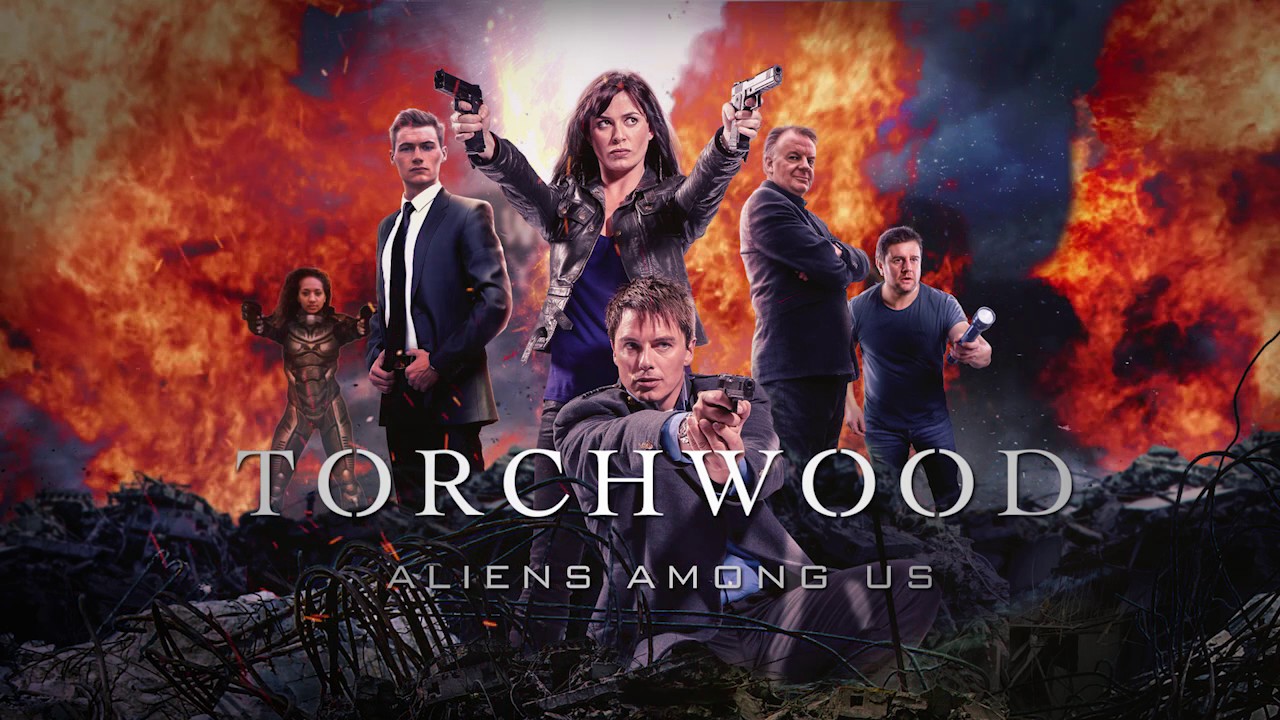
No wonder she’s in the same pose as Gwen on the cover.
3) “Orr”, by Juno Dawson
“Your little brains are unequipped to handle anything beyond the simplest of binaries.”
TIBERE: And after the big romp, things slow down a lot, we have a change of writers, and we have, for an hour straight, what is probably the most thorough exploration of the boxset’s themes so far.
SCRIBBLES: We weren’t exactly quiet about how much we loved “The Dollhouse” and here, Juno Dawson goes two for two. It’s a very dense script, and I had a bit of trouble following its movements on my first listen, but it’s absolutely loaded with meaning and poignant character work.
TIBERE: Torchwood has always had a bit of a problem with diversity and representation, I think it’s fair to say – it’s both an important milestone for LGBTQ representation and a deeply problematic one (looking in your direction, Toby Whithouse …). So having Juno Dawson onboard as a regular writer is really one of the best things they could do, because it really does feel like she is one of the most vibrant forces for progress the Whoniverse has at the moment – and while Big Finish is still very, very lacking in the diversity department, it’s great that they broke two important milestones before the show by hiring Who’s first trans writer, but also by having, in that story, the first explicitly non-binary character in the franchise (bar that weird snail from “Orbis”, but they don’t count). And you know, it does feel like an exorcism – to see Jack be the one to stand up for Orr when they get misgendered; to have the one asshole that uses “he/she/it” (still looking in your direction, Toby Whithouse) get chewed on … It’s very purposeful, and absolutely fantastic. But of course, it’s not just representation for representation’s sake, although that would be a worthy goal in and on itself – there is a point being made. By having, of course, someone outside of gender norms presenting another face of this “alien-ness” that’s key to the themes of Aliens Among Us; but also by having Orr bringing to the surface the inner contradictions and secrets of the Torchwood team. Ng says, in the first episode, that “the real truth is underneath”, and, in a grand display of psychology, Orr is basically a living, walking return of the repressed.
SCRIBBLES: Orr’s scenes alone with members of the cast are all absolute triumphs, aren’t they? It’s absolutely the best material Tyler has yet received, for starters. Colchester gets a very cute scene. Ng winds up quite on edge in a delicious way, worried that her secrets could be pried into and her assumption of Gwen’s identity found out, and there the paralleling of her with Tyler continues, because he also concludes the story trying to hide himself. And, finally, there’s Jack, who Orr consistently shines with. They’re the only person that could every really outdo him as the larger than life omnisexual sexy hero, by blurring any categories even further by utterly destroying gender and sex. Orr is basically how Jack would be envisioned in the 2010s, with modern conversations on gender and identity, and they’re absolutely a perfect character for Torchwood.
TIBERE: Oh, so much. The exploration of Tyler’s emotional vulnerability is great, and Colchester’s deep sincere love for his husband (that I’m pretty sure is voiced by Ramon “his voice does things to me” Tikaram, but I’m not gonna get confirmation on that one until the second set) are fantastic scenes. And of course, the final beat of Jack and Orr waiting for the end in a meadow is just one of the most beautiful, affecting things Torchwood has ever done – I especially like the way Dawson uses the occasion to call back to Ianto in a way that never feels like it’s blind fanservice or pandering to his extremely important fanbase.
SCRIBBLES: Was Ianto even named? I don’t believe his name ever was, and it’s all the stronger that way knowing that’s who it’s about. Juno Dawson brings a really wonderful understated touch to this whole script, which the actors all bring their a-game to. “Aliens Among Us” is shaping up to be playing a lot of games with layers of its diegesis, such as with the recast Gwen, and Juno Dawson brings a script that perfectly understands the complexities and ambiguities and provides ample space for them to grow.
TIBERE: It’s also, and that bears repeating, a delightfully political script. It probably has the single strongest beat in those four opening episodes – a white businesswoman committing a suicide attack while shouting “God is Great!” while a burqa-wearing, gender-nonconforming refugee gets almost lynched in an airport because people single them out as looking like a threat. Orr really gives us an opportunity to see what the victims of this whole situation, the oppressed, feel – Tyler is a bit of a privileged git, and Jack, Gwen and Colchester are all, at variant degrees, servants of the establishment. But, in a story that explicitly references the loaded legacy of European antisemitism (the “red doors” movement painting the houses of refugees red is a call-back to the people that used to paint the doors of Jewish households yellow), you do need someone feels that kind of pain, that connects with that vision. And they bring real pathos and tragedy to the table – that final beat, where Jack tells them to, at the end, be themselves, only for Orr to answer that they can’t even recall who they used to be, at the very beginning, is heartbreaking; it links to the theme of alienation that has always been a strong, powerful part of Torchwood and also references the Who ethos of forging yourself a new identity, even if your original one has disappeared (cf. “Deep Breath” and Twelve’s broom speech).
SCRIBBLES: And even the resolution, which could be seen as a cop-out, is hauntingly meaningful. Orr isn’t killed after all because they’re too valuable. They are treated not as a person but as a commodity, practically a glorified sex toy. I don’t doubt at some point Ro-Jedda might try to reclaim her “property,” and that’d make for quite the chilling story. I guess both Juno Dawson Torchwood scripts so far (and please, dear God, let there be more) come back to a core theme of objectification. Really, the Torchwood audios have a lot as a whole, let’s not forget how prominent sex dolls are to the Committee arc.
TIBERE: There’s also the way the workers are treated in “Office of Never Was”.
SCRIBBLES: Or indeed even the building itself in “Superiority Complex.” But Juno Dawson brings a pretty special touch to it. Her stories are about people as commodities that are fought over the price tag of, from the bidding for dolls to the use of Orr as an expensive reward to loyal service. Orr being a genetically engineered life just connects them all the more to these other explorations, though, from buildings to sex dolls. Because an artificial life is still life, and still deserves agency and identity.
TIBERE: At the same time, she’s able to find a certain amount of satisfaction and fulfillment in sex and emotional connection with people, using her abilities to become a therapist of sorts (“Anything you’d like to tell him? Or to hear him say?”) to people. I feel like Torchwood often is at its best when it’s at its more sex-positive, using romantic connections, especially queer ones, almost as weapons – see “The Dying Room” for a recent exemple of that.
SCRIBBLES: Speaking of finding satisfaction and fulfillment in sex and emotional connection, how excellent was Orr’s backstory with another of their kind?
TIBERE: Another absolutely perfect touch – which perfectly embodies, once again, the paradoxes of the set. The most human of emotions, love – the opportunity for genuine emotional connection; happens in a relationship that would be absolutely alien to us, that operates according to incredibly weird and strange parameters. But much like the bride of the previous episode found a surprising poignancy and spirituality in the middle of her vore rampage, it still works, and the alien and human get mingled in ways that produce incredibly compelling drama.
SCRIBBLES: Perhaps the real aliens were inside us all along. And that sounds way kinkier than I intended.
TIBERE: This audio references sex toys, muscle fetishes, DILFs, and even mechanophilia. You’re on brand.
4) “Superiority Complex”, by AK Benedict
“All life is equal. Animal, mechanical, and all life in between. I know it better than anyone.”
“But is all life good?”
SCRIBBLES: And so continues musings on identity, dehumanization, what it means to be a person, and privilege and oppression dynamics. Complete with lift genitalia. What more could you ask for?
TIBERE: There are two moments in that audio that made me want to snog AK Benedict. That was one. The other was “you always need a Harkness inside you”, aka maybe the single most shameless sex joke in the history of Torchwood, which is saying something. But really, overall, this is just a really tight, really strong script – easily Benedict’s strongest work so far. I guess that, considering the preoccupations Torchwood always had with architecture, be it the city of Cardiff, the Hub, or certain places (the hospital in “Adrift”, the Blood Line, the Office in “Office of Never-Was”) …
SCRIBBLES: Not to mention standing on roofs. I loved the little nod this set gave to that.
TIBERE: … It was only a matter of time before the attempted that classic BF exercise, the Rob Shearman pastiche. Eddie Robson did it with “The Condemned”, and now it’s AK Benedict’s turn. You know, this is not “Chimes of Midnight” (few things are), but it’ll do in a pinch. Ideology built in physical constructions mixed with a combination of grisly gore (and damn, some of those death scenes get brutal – yeesh, the hot bath one …) and outrageous comedy is always, always a good recipe.
SCRIBBLES: What’s really important in this episode, more than anything, is the role Orr plays. This whole set is built around introductions, and this story is basically Orr’s “Day One,” constructed around specific concerns at the core of their character. And it works wonders. The juxtapositions they are put through all illuminate them as a person and draw attention to what the character brings to the series. What’s more, they get very real. The relationship with an intelligent building isn’t something you’re going to see so much in real life, but the amount of sympathy for harassed service workers is truly touching here, and paints Orr’s alien struggles within a very human framework.
TIBERE: And those struggles are very realistic, too. The way it handles the sexual harassment the hotel workers have to go through, for instance, that’s an absolutely great beat (and coming from a country where someone who was one of our most important politicians at the time raped a woman from the room service of an hotel he stayed in, circa, 2012; it sadly feels all too relevant …)
SCRIBBLES: Of course, as this is Torchwood, along with discussions of these themes comes a fair bit of musing on kink, which was quite amusing and even managing a fair bit of depth. The notion that aliens might fetishize humans is fascinating, particularly given the manager responsible for all this harassment going unaddressed himself has that kink. It feels a bit like the way humans might fetishize different ethnicities, portraying black men as sexy strong brutes or asian women as petite and dainty and innocent and vulnerable. It’s dehumanizing and creepy and exoticist, but a very real section of society. The manager marketing to that is awful to listen to, but extremely real. And, again, it ties back to Orr. The suggestion of the creation of synthetic humans for the hotel guests to harass to their heart’s content very much resembles Orr’s own backstory.
TIBERE: It’s also a nice call-back to the opening episode, where Ng chews out Colchester for him constantly yelling abuse at the Torchwood Hub computer – “You don’t have to be so sexist!” “She’s a computer, she can take it.”
SCRIBBLES: It also reminds me a bit of another real world controversy. Recently there was an uproar over sex dolls designed with a “frigid” setting that would make them respond unfavorably to advances so people can simulate rape fantasies. Yes, that’s an actual thing. And the question that has to be asked, of course, is is that okay? Is that still a violation? Does it encourage violations? Of course, the programming of a real world sex doll isn’t going to be anything like a sentient hotel or genetic experiment or android sex doll from Torchwood. But it provides a space for a fascinating and nuanced exploration of sexuality in regards to oppression, identity, and fetish.
TIBERE: I feel like the ending is veering towards exploring the dynamics of protest (a theme that will surely become more relevant in the future boxsets, considering the fact they’ll be centered around a mayoral election …) – with the masses of people attacking the hotel, yelling “humankind, equal rights!”, being attacked by the authorities and reactionary establishment (blimey, that’s just science-fiction, it’s not like a car went through a crowd of antifascist protesters while we were writing this article …); and also contrasting nicely the approaches of Orr, wishing for the “rehabilitation” of the hotel, and Ng, pretty happy with just dumping it into the vaults of Torchwood and forgetting about it. Which is a nice way to go back to that big problem that Torchwood has, ie that for an organisation that’s supposed to collect and gather alien technology, they really never do anything with it.
SCRIBBLES: Just one ambiguity of the many we’re left with at the end of this set. It really does only feel like the beginning. We’ve now got an election looming, Tyler recruited by Ro-Jedda, Ng and Gwen set for a reckoning, Mr. Colchester’s potential marital disputes, and a whole lot of fallout set to come. “The Torchwood Archive” warns us a bit about what’s to come, about something coming in and replacing humanity, perhaps the Sorvix, or, I think, more likely the way Ng has stepped into inhabiting Gwen. There’s so many themes and plot threads hanging, and we’ve got eight more episodes to hammer them out in style.
TIBERE: … And of course, that last line of the trailer tells us that good ol’ Bilis Manger is back in town.
SCRIBBLES: Plus Andy in the opening! Now the establishment portion of the series is out of the way, it seems like we’re poised to dive into the drama with some familiar faces. I for one can’t wait.
TIBERE: Me neither. This is going to be a wild ride …
Partager :